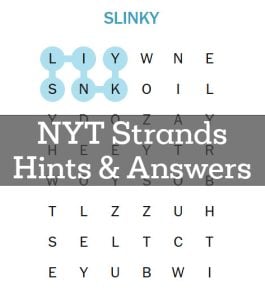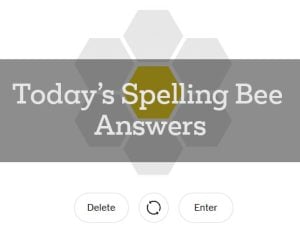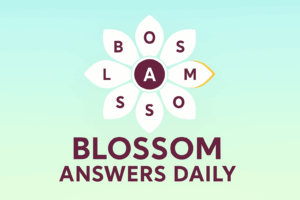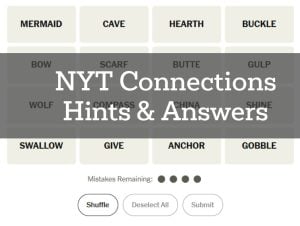Looking for the answers and hints for the Quordle puzzle from June 13, 2025? You’ve come to the right place! Every day, we archive the solutions to help you check your work or get that final clue you need. Below you will find all the answers for yesterday’s Quordle challenge.
Quordle Hints for June 13, 2025
Here are all the official hints to guide you toward the solution.
Word 1 Hints:- The word has a consonant-vowel-consonant-vowel-consonant pattern.
- This word is a verb that describes an active response to something undesirable.
- It is commonly used in fields relating to chemistry or physics, especially when discussing forces or substances.
- You might do this when you encounter something unpleasant or when you strongly disagree with someone's opinions.
- If you're compelled to push something away or to create distance from it, you're thinking along the right lines.
- The word has two vowels in the first and second positions, followed by three different consonants.
- This is an adjective typically used to describe size or magnitude.
- It often appears in discussions comparing dimensions, quantities, or capacities of objects or spaces.
- When discussing, say, an event or a structure, you might rate it based on its impressiveness or expanse using this term.
- If something has considerable size or extent, one might use this term to connote its substantial presence that’s hard to overlook.
- The word follows the pattern consonant, vowel, consonant, vowel, consonant.
- This is an adjective, often used to describe a remark or tone.
- It pertains to a type of behavior found in social interactions, particularly when one expresses contempt or mocks in an indirect way.
- You might encounter this adjective in literary critiques or when describing someone's sneering manner in a debate or argument.
- If someone were to make a remark that's cleverly insulting, they're being subtly disparaging without outright confrontation.
- The word follows a consonant-vowel-consonant-consonant-vowel pattern.
- This word is a verb and can also be used as a noun in some contexts.
- The term is related to the action of moving something from one place to another, often by someone's physical effort.
- You might use this verb when referring to holding and moving objects, especially while walking or when you support someone emotionally.
- Reminiscent of a service provided by certain animals or vehicles to transport goods, this word involves a type of load management.
Spoiler Warning!
The final answers are below. Stop scrolling now if you want to solve it yourself!
Quordle Answer for June 13, 2025
Here is the final, official answer for the Quordle puzzle that was released on June 13, 2025.
REPEL, a verb, means to drive or force back or away. It implies a strong resistance or the ability to fend off something unwelcome. People often use REPEL in the context of insects—as in 'insect repellent'—or when describing a forceful rejection of an idea or person. The term comes from the Latin 'repellere,' where 're-' means 'back' and 'pellere' means 'to drive.’ REPEL can be challenging in Quordle due to the double 'E,' which isn't common in many English words, potentially misleading players to search for varied vowel patterns.
Word #2: LARGELARGE is an adjective that describes something of great size, extent, or capacity. It frequently appears in everyday language for comparing sizes or discussing quantities, such as 'large pizza' or 'thinking large.' The word traces its roots to the Old French 'large,' with Latin origins from 'largus,' meaning 'abundant or generous.' In the context of Quordle, LARGE could pose a challenge if players have not yet identified the position of the 'R,' which isn't typically preceded by 'A' in many English words.
Word #3: SNIDESNIDE is an adjective that refers to derisive or mocking comments, actions, or attitudes. You'll often hear it in contexts intending to express an insult or disdain: 'snide remarks' or 'snide humor.' Its etymology is somewhat unclear, but it may have originated from the Low German 'sniden,' meaning 'to cut,' which captures the idea of cutting remarks. For Quordle players, SNIDE may be a tough word to guess because of its unusual consonant blend 'SN' at the beginning and the uncommon juxtaposition of 'IDE' towards the end.
Word #4: CARRYCARRY is a verb that means to hold or support while moving something from one place to another. It's commonly used in many scenarios, such as 'carry a bag' or 'carry out a duty.' The word boasts a long linguistic history, stemming from the Old Norman French 'carier,' which means 'to cart or to carry.' The transition to the English language involved a shift in pronunciation and spelling. In Quordle, the word CARRY might be difficult to solve because of the double 'R,' which players might not expect, and it might be confused with similar-sounding words with different spellings, like 'CARROT' or 'CAREY.'
Read More Daily Game Answers
Check out the answers and hints for our other popular daily word games and puzzles.






